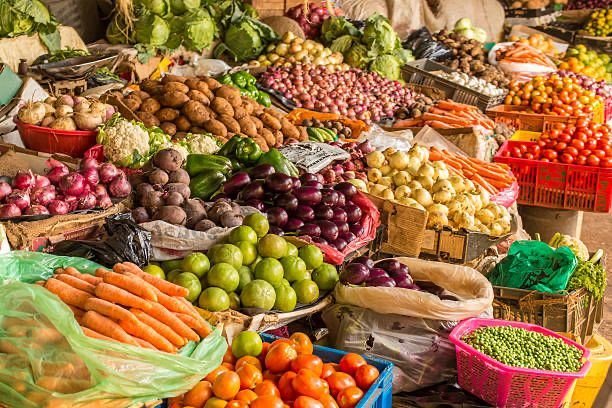In a world brimming with culinary diversity, the spotlight often shines on cuisines from renowned gastronomic capitals. Yet, nestled amidst the vibrant mosaic of global flavors lies an often overlooked treasure trove: African cuisine. Beyond its tantalizing tastes and aromatic spices, African food embodies a profound cultural heritage, weaving together stories of tradition, community, and resilience.
Diverse and Dynamic: The Culinary Landscape of Africa
Africa, the world’s second-largest continent, boasts a culinary landscape as diverse as its people and landscapes. From the aromatic tagines of North Africa to the fiery jollof rice of West Africa and the savory injera of East Africa, each region offers a distinct culinary identity rooted in centuries of tradition and innovation.
One of the defining characteristics of African cuisine is its reliance on fresh, locally sourced ingredients. Staples like grains (such as millet, sorghum, and maize), tubers (such as yams and cassava), vegetables, and a colorful array of spices form the foundation of many dishes, reflecting a deep connection to the land and its bounties.
Beyond sustenance, African food is a celebration of communal values and shared experiences. Meals are often enjoyed in the company of family and friends, fostering bonds that transcend generations. Through the act of preparing and sharing food, stories are passed down, rituals are honored, and cultural identities are preserved.
Preserving Tradition, Inspiring Innovation
In recent years, African cuisine has garnered increased recognition on the global stage, thanks in part to a growing appreciation for its bold flavors and unique ingredients. Yet, despite this newfound acclaim, many traditional African dishes remain underrepresented in mainstream culinary discourse.
As champions of African gastronomy, it is incumbent upon us to elevate and celebrate the rich tapestry of flavors that the continent has to offer. This entails not only embracing traditional recipes but also supporting local farmers and producers who are the custodians of indigenous ingredients and cooking techniques.
Moreover, as we look to the future, there is ample opportunity to reimagine African cuisine through a lens of innovation and sustainability. By incorporating modern cooking methods, exploring fusion cuisine, and promoting food sovereignty initiatives, we can ensure that African food continues to evolve while staying true to its cultural roots.
Embracing Diversity, Building Bridges
At its core, the importance of African food transcends the realm of gastronomy; it serves as a bridge that connects people across continents and cultures. Whether through shared meals, culinary festivals, or immersive cooking experiences, African cuisine has the power to foster cross-cultural understanding and appreciation.
In a world that often feels divided, the act of breaking bread together reminds us of our shared humanity and the universal language of food. By embracing the rich tapestry of African foods, we not only indulge our taste buds but also embark on a journey of discovery, celebration, and connection.
So let us raise our forks in celebration of the vibrant flavors, cultural heritage, and enduring spirit of African cuisine. From the bustling markets of Lagos to the sun-kissed savannas of the Serengeti, let us savor the diversity and richness that African food brings to our tables and our lives.

